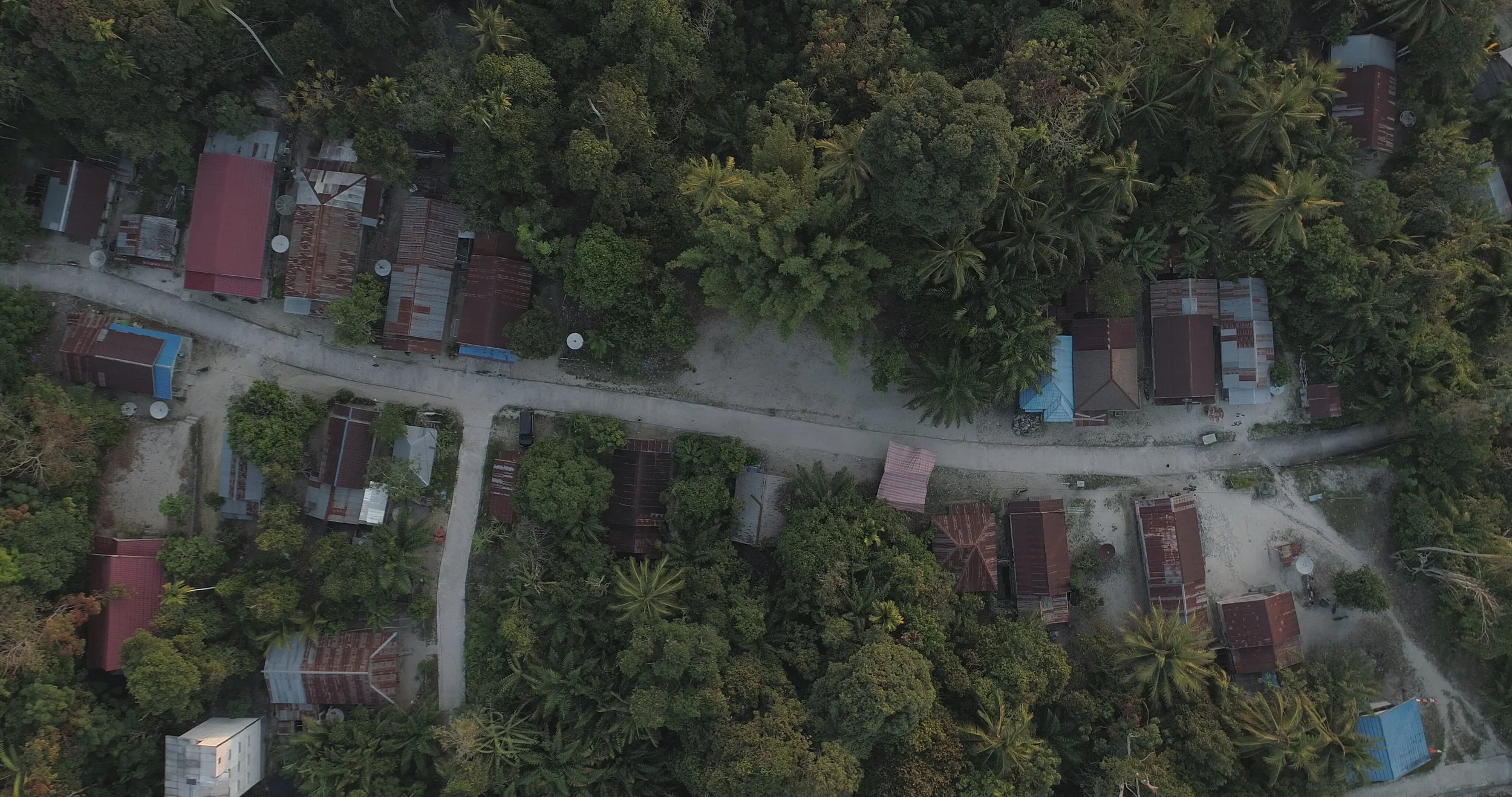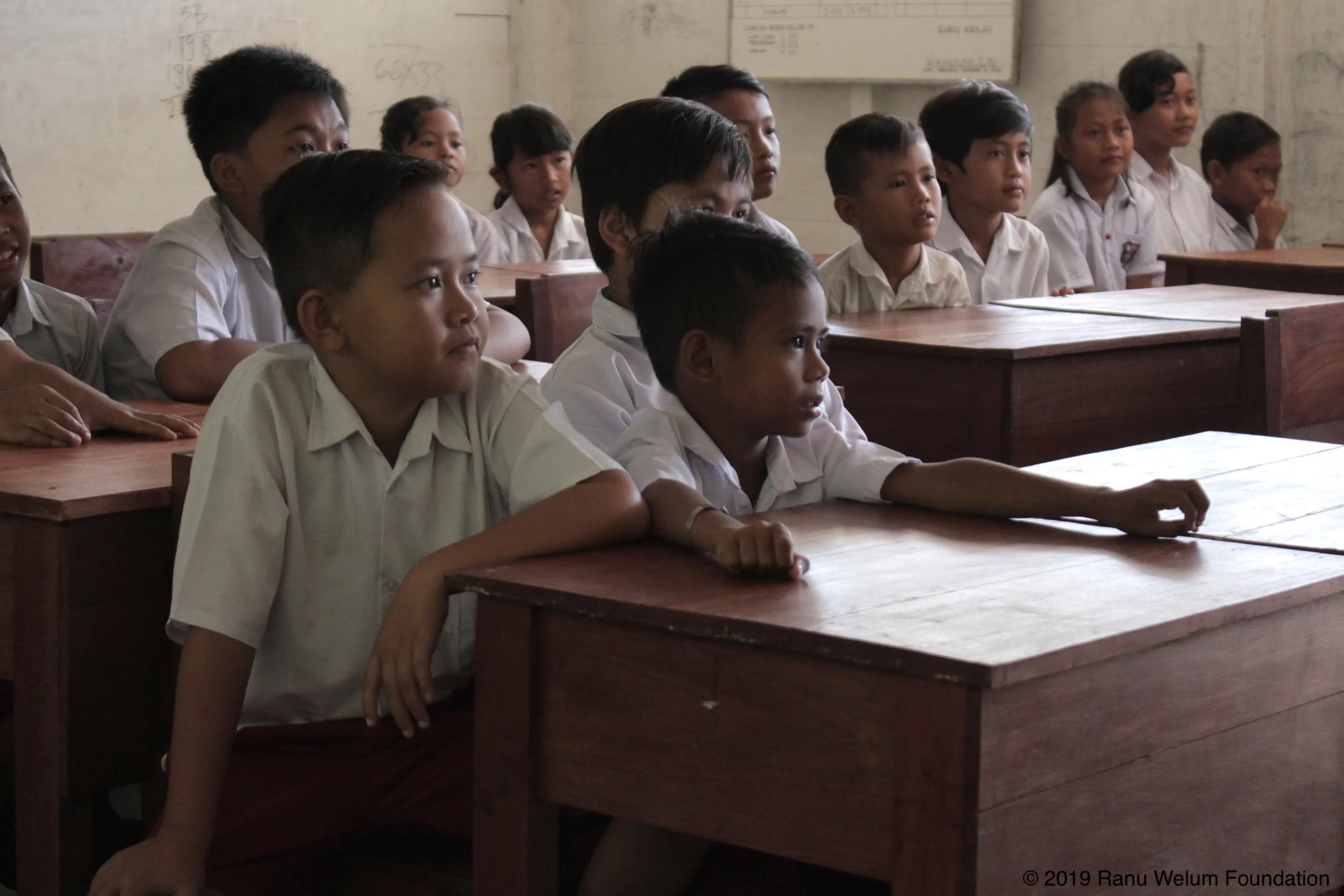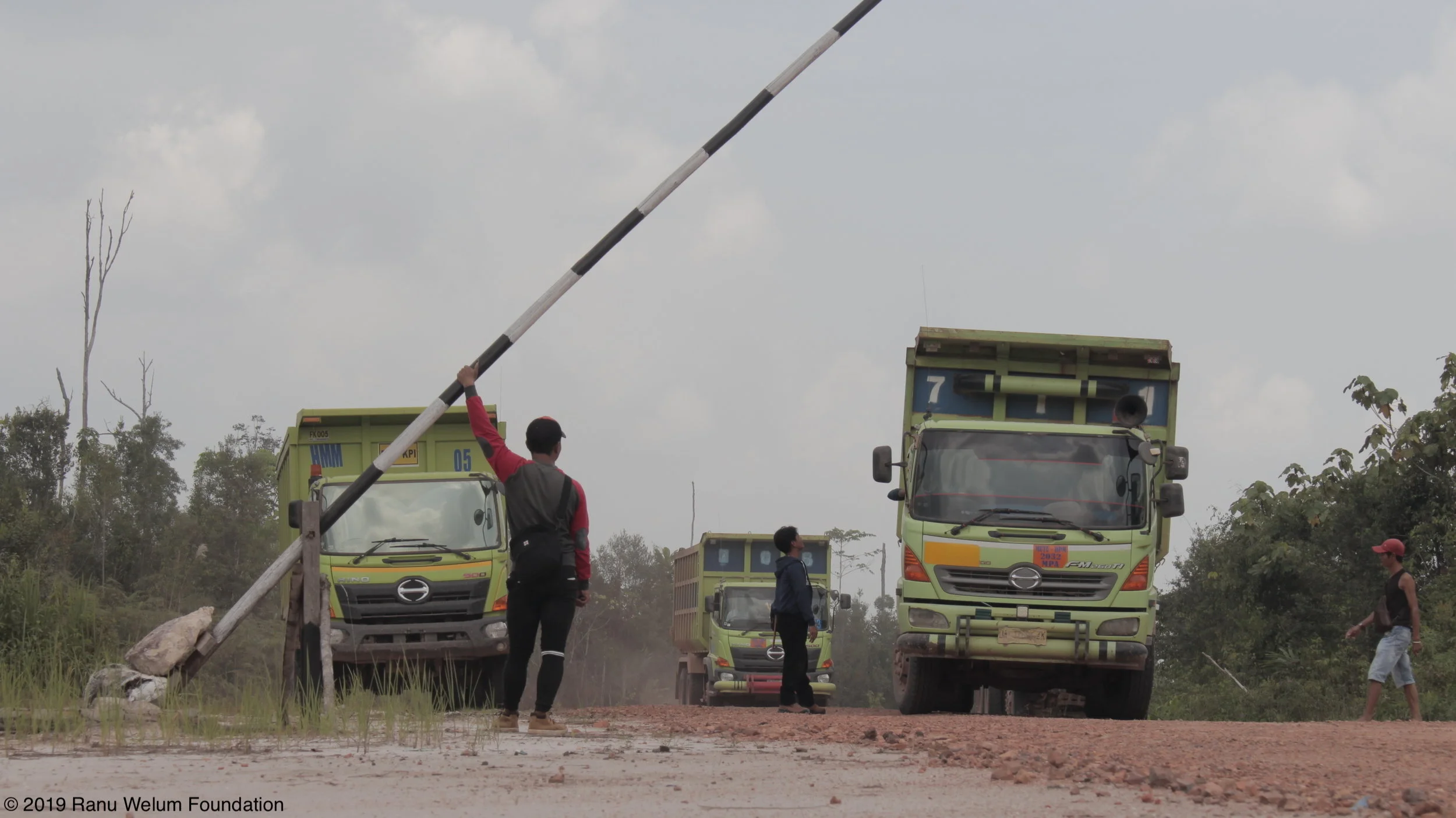The Truth Untold: Learning from Talekoi Village in Kalimantan.
A Story by Nanda, 23 years old Dayaknese that spent almost her whole life outside her home island.
Talekoi Village, a village in the middle of forest | Photo courtesy of Ranu Welum Media
Just moved back in to Kalimantan, there’s nothing more that I wanted to do other than go to the villages. I was stoked when I first heard the plan that we are going to stay in a village area for five days, as the city is immensely stressful. Imagine this, in the morning you’d want to wake up early to feel the breeze, fresh air, and good energy. Then, you open the door -- visually, you’ll see that your surroundings look foggy, as if it’s some misty morning yet it’s not, the smog is so thick that your everything looks white; aromatically, you can smell that it’s from smoke, it makes you paranoid to just breathe the air. Auditorily, sounds of the water-bombing helicopters going back and forth, listening to that you know that there’s a fire somewhere, and it’s already big, it’s already eating all the trees surrounding it and you will be left with nothing. The complete opposite of the expected “good energy”. Enough of this, I can go on forever. Back to the main topic: the village.
Talekoi Village is a six hour car ride away from the city Palangkaraya, it was a long journey of both happiness and sadness switching back and forth, imagine a roller coaster track. The series of being lifted so high up from joy and then suddenly dropped down with mental breakdowns still gets to me, even now while writing this. Why? I remember how I got very excited as we reached the much more remote area because from the windows we could see forests of diverse trees, open the window and feel the breeze, we even see a monkey on the side of the road! Soon after passing that, the view suddenly changed to the monotone-ness of palm oil plantations on the right side and burning peatland on the left side. Anxiousness of what the land will end up to be entered mind and the guilt of being unable to do anything triggered depression. Picture this: Trees full of leaves going from green to brown, then completely black. It crushed my heart. We also passed areas of burned peatlands from years ago, which has turned into a massive field of Kalakai (peatland fern).
Logging trucks passing beside our car | Photo courtesy of Ranu Welum Media
Arriving in South Barito Regency, getting closer to the village, we get to learn another sickening, bitter truth. The only way to reach Talekoi village by land is through these two 'accessible' roads: one through a mining pass and the other is through a logging company pass. What it looks like? The mining pass: rocky red soil made by Hasnur Group, a company that does all three: mining, logging, palm oil. It was created years ago when it was active in logging the trees of North Dusun. Now the road is being used by another company, a Korean coal mining company called PT Palopo Indah Raya. Huge trucks carrying coal and excavators passed beside us, blew clouds of dust until it’s hard for us to see from the car (imagine villagers having to get affected by this while riding motorbikes). It rained when we were driving so it was very muddy and slippery. The logging pass: compilation of rocky and sandy soil, holes, and the highlight: giant trucks carrying logging wood from PT Sindo Lumber passing by. It gave a sense of claustrophobia to see it from inside our small car. After it passed, clouds of dust made it unable to see anything else for a few seconds (imagine again if you’re in a motorbike like the villagers). I had never seen the wood from the logging industry before. They are HUGE and LONG logs in LARGE quantities as well. Throughout our trip, we passed so many logging trucks. Multiply it by 365 days and again by the 40 years of this logging company’s existence. All your efforts in campaigning on saving the trees seem... Useless.
Logging truck of PT Sindo Lumber | Photo courtesy of Ranu Welum Media
After the emotional drive, we finally arrived at the village. The village was so green, so calming, so peaceful, it brought so much joy and happiness. As expected from village people, it’s all love and care. We were welcomed so brightly. As we talked more and more with the village people, I got to learn the issues they’re facing. Those companies I mentioned above have been affecting the village’s livelihood in so many complex ways. The people of Talekoi village understand fully what’s happening and why it happens - the erosion of the lake and pollution of the river is the solid proof of damage from all the companies. Even though they are located in a remote area, Talekoi Village used to be self-sustainable. They practiced carefully monitored slash-and-burn agriculture, but they can no longer do this as the government’s new regulations which restrict burning peatland is very strict for the weaklings - farmers. They can barely fish since the lake has become so shallow and full of sand. They can’t fish, they can’t farm, how can they eat? Most of the Talekoi villagers only fish to feed themselves, not even for selling. Now they have to buy fish from other villages.
Fisherman pulling his boat because the lake is very shallow | Photo courtesy of Ranu Welum Media
They thought that the existence of companies would help them prosper with endless job opportunities. But the untold truth is that the companies continue to hire workers from outside the area, even for simple jobs, like truck drivers. It’s not just that the villagers blindly expected jobs, when they first came and invaded the area, the companies promised to employ the villagers as compensation for the use of their indigenous-owned land and having their villages as “lintas” or company passway. There is no way that a company which cares for its neighbors and ‘future’ employees would put an industrial road through a residential area. No way. No one would want to have clouds of dust blowing to their house and feel the vibration of massive vehicles every day.
Elementary school students in Talekoi Village | Photo courtesy of Ranu Welum Media
I got to visit the school and met the children, the next generation of Talekoi Village. It made me hopeful to see 33 enthusiastic children learning. Although the school is lacking in so many ways, the students are very eager and love to learn, it showed in their eyes. I also learned from the teachers that three out of six of them are still categorized as ‘honorary’ teachers (in Indonesia public school teachers should be categorized as government workers and receive a minimum wage from the government, but with all the complications in regulations and policy there are still some uncategorized-as-government-worker- teachers who have actually has been dedicating their life to teaching. They are called 'honorary' - only receive IDR 300.000 or $20 as their monthly salary). We met with Pak Herlianto, a ‘honorary’ teacher for 15 years. We asked how he can keep working as a teacher with so little pay and how can he feed his family. He explained how he would go to his rubber tree farm and work there early in the morning before going to school to teach. The school is accredited as E and if in the next accreditation is still below C, it's most likely to be closed. The students would have to go to a school in the neighboring village, Bundar village. It's 3 KM away, around 15 minutes from Talekoi, but to get there villagers must pass the companies passway, pass the company vehicles - risking their health and even life for the sake of education. If the school is closed, some might not be able to continue pursuing their education at all.
This is very hard to write and is not even a complete explanation of all the issues, it might become a full book if it does. Now that the decision of movingthex capital city of Indonesia to Kalimantan is now final. For the sake of preventing Jakarta from sinking, Kalimantan, which has continuously has sacrificed for its industries, will be pushed further into destruction as more irresponsible infrastructure and investments keep coming in. All for the sake of the 'economic equality’. Whose economy? In all of this mess, it’s like both government and companies work together to take all that they can from Kalimantan. My home.
The movement of the capital city is now inevitable, but what can we do? Can we demand the government to ensure that forest and indigenous communities are protected? It’s not just a Dayak issue but it’s also a national issue and even a global issue if it affects the rainforests. Can we demand transparency of all plans, environmental impact assessments, and indigenous community involvement in planning them?
Along with the indigenous Dayak community that courageously face the giant trucks and superior foreign workers of PT. Palopo Indah Raya (Korean-invested coal mining company that has been permitted by the government) to demand justice for the highly impacted villages from the company’s activities and challenge the company’s false promises, I want to do something. Can we protest? Will it make a difference?
Indigenous Dayak community stopping PT Palopo Indah Raya’s trucks | Photo courtesy of Ranu Welum Media






